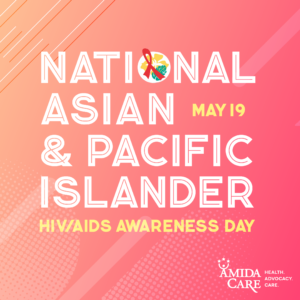National Asian and Pacific Islander HIV/AIDS Awareness Day: Anti-Discrimination Work is Also HIV Prevention

Wednesday, May 19, is National Asian and Pacific Islander HIV/AIDS Awareness Day (NAPIHAAD), an annual observance founded by the Banyan Tree Project. As we work to end the HIV epidemic, we must address the unique needs of Asian and Pacific Islander (API) communities. Central to this work is fighting discrimination, including recent acts of anti-Asian harassment and violence in the wake of COVID-19.
We know that HIV treatment and prevention is not one-size-fits-all. Recently, the API Ending the Epidemic Advisory Group presented a report detailing implementation strategies to the New York State AIDS Advisory Council Ending the Epidemic Subcommittee. In the report, Therese Rodriguez, Advisory Group Chair and CEO of Apicha Community Health Center, noted the long history of misrepresentation in HIV/AIDS surveillance data, beginning in the 1980s when the CDC grouped Asians and Native Americans into the “other” category. As Rodriguez says, “Although ‘other’ has been replaced by ‘API,’ the sense of inclusion remains extremely tenuous.”
According to the report, new HIV infections among API populations have decreased only 3% in New York State since 2001. And although HIV research is always advancing, there is a lack of research focusing on API populations. It is critical to address the institutional barriers that contribute to these health disparities. There is a great need for culturally-informed strategies to build trust among API, especially in immigrant populations. “Many have no access to insurance. Those who are newly-arrived are unaware of the resources that are available,” says Rodriguez. “The fact that we are or our ancestors are non-white and foreign-born has a lot to do with the extent of our marginalization.”
As with many populations, most new HIV infections among Asians, native Hawaiians, and other Pacific Islanders occur in men who have sex with men. According to the latest statistics from the Centers for Disease Control, from 2014 to 2018, the overall transmission rate has been stable among Asian men with an upward trend among 25-to-34-year-olds and those over 55. When compared with other people with HIV, Asians were less likely to have received HIV care and treatment, even though 4 in 5 knew they had the virus.
Solutions
We cannot end the HIV epidemic without serving and supporting Asian and Pacific Islanders, and that includes standing up against discrimination. If people become withdrawn because they’re fearful of being attacked, that undermines efforts around outreach, data collection, and ultimately, ending the HIV epidemic. To help fight recent acts of anti-Asian violence and harassment, several organizations offer free Bystander Intervention Training:
Hollaback
The Center for Anti-Violence Education
The New York City Human Rights Commission
Additional recommendations from the Asian and Pacific Islander Ending the Epidemic Advisory Group include:
- Fostering collaboration in data collection/analysis among community health centers that serve API populations.
- Improving outreach on specific social media outlets used by API.
- Including diverse API representation in health campaign materials and on tools developed to promote and educate communities.
- Developing and promoting educational tools for local health organizations to build trust and decrease stigma, such as a video about confidentiality that would be translated into various languages.
The CDC’s Let’s Stop HIV Together campaign also provides information on prevention, testing, and treatment with specific resources for Asian, Pacific Islander, and Native Hawaiian people.
We need an approach that honors and respects who people are and meets them where they are. Funding and program development needs to be dedicated to API-led organizations, and people who identify as API must be involved to help design outreach efforts. API Americans will benefit greatly from increasing and improving resources and outreach, fighting stigma around HIV, and promoting efforts such as bystander intervention training to prevent violence, harassment, and discrimination. Let’s remember that anti-violence and discrimination work is also HIV prevention.
